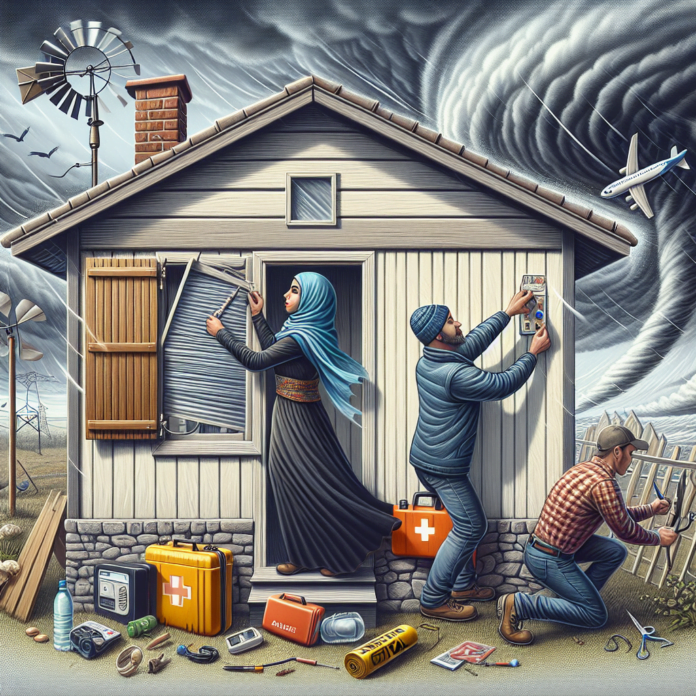Severe weather is something that we all need to prepare for regardless of where we live. It could range from thunderstorms, hurricanes, to blizzards or heatwaves. Preparing for severe weather does not simply mean keeping an umbrella handy or ensuring your air conditioning or heating system is in good condition. It includes planning for potential disasters that heavy winds and extreme temperature changes can bring about. In the following sections, we will provide you with practical and helpful tips on how to stay safe and prepared for severe weather.
Creating a Disaster Plan
Having a disaster plan in place for your household is an extremely important first step. This plan should include evacuation procedures, a meeting location for your family members, and an acquaintance or family member’s contact information who lives out of state to coordinate communication. See that everyone in your household is familiar with this plan and practice it regularly.
In-house Supplies
It’s not always possible, practical or safe to leave your home in case of extreme weather. Therefore, you must prepare your household with an ample amount of supplies. This could include canned goods, bottled water, batteries for flashlights, and a first-aid kit. A small battery-powered or hand-cranked radio can also be handy to stay updated about weather conditions if the power goes out.
Monitoring Weather Reports
Stay up-to-date with the weather conditions by tuning into local news channels, weather websites, or radio stations. These sources will provide you with regular updates and will help you comprehend the severity of the expected weather changes.
Securing Your Property
Severe weather like storms and high winds can cause substantial damage to your property. Therefore, you must ensure that your property is secure. Trim tree branches that hang too close to your house or wires. Make sure doors, windows, and roofs are sturdy and check for any repairing needs. If you’re likely to be hit by a hurricane, consider installing storm shutters on your windows or use plywood to prevent shattering.
Protecting Important Documents
Always keep your important documents such as insurance policies, birth certificates, and other vital records in a waterproof container. In case you need to evacuate, you can quickly grab them.
Ensuring a Safe Shelter
If you’re faced with extreme weather like tornadoes or hurricanes, the basement or an internal room without windows is often the safest place in your home. Equip this room with some basic necessities like a flashlight, water, a small first-aid kit, and blankets.
Being prepared for severe weather is a vital part of ensuring the safety of your household. By creating a disaster plan, securing your property, ensuring a safe shelter and being prepared with a stock of necessary supplies, you can reduce the impact of unprecedented weather conditions on your family’s well-being. Monitoring weather reports regularly can also give you the advantage of time to prepare appropriately. Despite the unpredictability of weather, being adequately prepared can help reduce the risks and damage associated with it. Remember, your safety and of those around you is the ultimate priority, belongings can be replaced, but lives cannot.
Frequently Asked Questions
1. How can I receive weather alerts?
There are many ways to receive weather updates, such as television, radio, the Internet, and smartphone apps. NOAA Weather Radio is also a reliable source to stay informed.
2. What are some necessities to keep at home for severe weather conditions?
Keep a stock of water, canned food, a manual can opener, batteries, torches, a battery-operated or hand-cranked radio, a basic first-aid kit, and necessary medications.
3. How can I safeguard my property against severe weather conditions?
Start by trimming tree branches close to your house or wires. Ensure your doors, windows, and roof are in good condition. Install storm shutters for extra protection against high winds.
4. What to do in case of evacuation?
Follow your disaster plan, which should include evacuation procedures and a designated meeting place for your family. Grab your necessary belongings, important documents, and leave as quickly and safely as possible.

